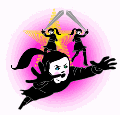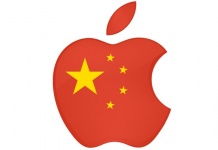 A few days ago, I mentioned that Cory Doctorow’s new young-adult novel For the Win was now available as a free e-book. Since then, I have actually read it, and so it’s time for a review.
A few days ago, I mentioned that Cory Doctorow’s new young-adult novel For the Win was now available as a free e-book. Since then, I have actually read it, and so it’s time for a review.
Though if we’re going to look at For the Win, we should first look back at “Anda’s Game”, Doctorow’s novella of a few years ago that served as a sort of prototype for the ideas he expanded into this book.
Only the ideas were expanded—the characters and situations in For the Win are entirely different, though there are some obvious parallels—but “Anda’s Game” covers some of the same ground as its successor, albeit more succinctly.
“Anda’s Game” was published in Salon Magazine in 2004, and remains free for the reading; here’s a single-page version suitable for printing or running through Calibre.
Game On
Anda is a high-school girl in near-future Britain who spends most of her time playing an unnamed World of Warcraft-like MMO, as a member of an extremely large and well-known girl-gamer guild. (A guild is a group of players who band together to form an organization for their collective benefit.)
The guild’s renown is such that mysterious figures have begun paying its members real money, not in-game gold, for raiding and destroying what appear for all the world to be virtual sweatshops: laborers sitting around crafting cheap gear to be sold for in-game money.
Anda is puzzled over why this is worth real money, but goes along with it—until she meets up in-game with a labor activist who explains that Anda’s guild is being paid by real-world sweatshop owners to axe their competition in-game—and depriving poor Mexican workers of their daily wages.
As if that wasn’t enough for Anda to worry about, her lack of physical activity and addiction to candy sold in a shop near the school have led to the emergence of pre-diabetes symptoms.
These are Anda’s problems, and the rest of the story is about how she solves them. It’s a quick, compelling read. Anda’s situation, and her feelings about the part she plays, all feel very real. Her family and friends are not universally supportive, but neither are they unnecessarily cruel.
As is so often the case in YA fiction, Anda has to learn valuable life lessons over the course of the story, and the way in which she does so feels entirely natural.
Real-World Inspirations
And the backdrop is real, as well—up to a point, at least. As a long-time player of City of Heroes, I’ve heard all about the practice and the evils of selling in-game money for real. But there’s more to the issue than lazy players who can’t be bothered to learn how to play the game. It’s a way for workers in the third world to earn money—or, more likely, to be cheated out of money by their supervisors.
Now, I have no idea whether sweatshop operators really do pay in-game “hit squads” to take out competing gold-farming operations, and I’m pretty sure we don’t yet have people trying to organize gold-farming labor unions through the games. But Doctorow has done what any good SF writer should and extrapolated believably, even if the ending is a little simplistic.
Childish Things
That’s not to say quite everything about the story is good. “Anda’s Game” was written shortly after Ray Bradbury complained about Michael Moore appropriating the title of Bradbury’s book, Fahrenheit 451, for Moore’s movie Fahrenheit 9/11. Doctorow was so annoyed by Bradbury’s “tantrum” that he decided to write a series of stories borrowing the titles of other famous SF works. “Anda’s Game”, thus, takes its title from Orson Scott Card’s Ender’s Game, just slightly modified.
But within the story, titles of Bradbury’s works are sprinkled liberally throughout, as names of places in the game, or even as the name of Anda’s guild—“Clan Fahrenheit”. It just comes off as a childish “nyah nyah nyah” act to me, and kind of takes me out of the story a little.
But that shouldn’t stop you from reading it. Even with that little bit of childishness, “Anda’s Game” is a compelling read, and still thought-provoking six years later—and the price is right.
Tomorrow, I’ll review For the Win.
Related: In an early case of Apple iPhone censorship, a comic book adaptation of “Anda’s Game” was rejected from the app store due to showing an orc getting beheaded. Apparently this decision was subsequently reversed, however. (The full-sized version of the Creative Commons-licensed comic anthology containing this story’s adaptation can be found here.)
































